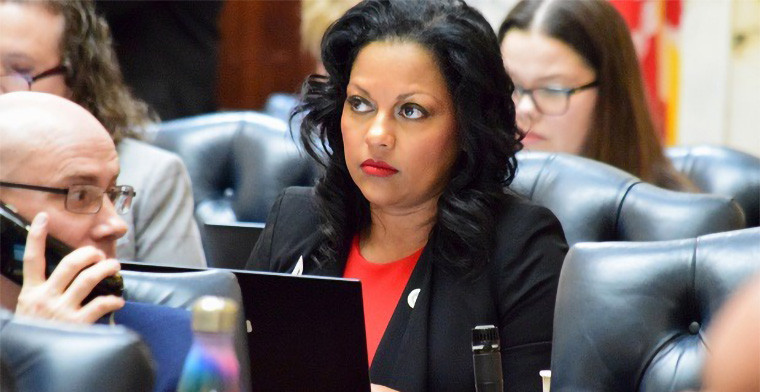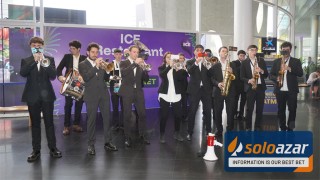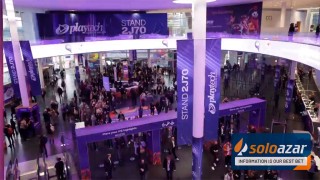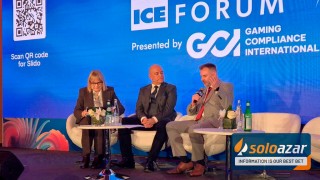Casino managers generally want iGaming, but their employees fear job loss
Tuesday 27 de February 2024 / 12:00
2 minutos de lectura
(Maryland).- Maryland’s casinos, as well as international gambling organizations, are pushing for state lawmakers to establish an internet gaming market. The proposal has a powerful sponsor in the House of Delegates that should ensure it advances from its committee to the full chamber, though it’s unclear whether a similar proposal in the Senate will have the support it needs to advance.

Voters would have to approve an internet casino gaming referendum on their November ballots before a legalized market takes shape.
Casino managers, company representatives and lobbyists, including from local brands like Horseshoe Baltimore and Riverboat on the Potomac, and international companies like MGM Resorts and Light & Wonder, told lawmakers Monday that legalizing internet casino gambling, or iGaming, would allow the state to capture revenue from a multimillion-dollar illegal market.
They also said a regulated market would allow operators to better protect those suffering from problem gambling or an addiction, including by capping the amount someone can bet or suspending a problem gambler’s account.
The casino representatives pushed back on claims that iGaming would cannibalize jobs at and around brick-and-mortar facilities, contending the new market would bring more customer traffic and create jobs at the facilities.
“I would not be up here if I had thought there (would be) a job loss,” said Randall Conroy, general manager of Horseshoe Baltimore.
Casino union leaders, though, fear that iGaming would eliminate jobs at the state’s six brick-and-mortar facilities, and organizations that research and combat problem gambling have said that granting people access to casino games anywhere they have internet connection will increase its prevalence.
Multiple organizations voiced these concerns again Monday.
“The job losses, unstable revenue and, definitely, the damage to public health are not worth the risk,” said Donna Edwards, president of the Maryland State and D.C. AFL-CIO.
Edwards cited a January report from the Baltimore-based Sage Policy Group stating that iGaming could result in more than 1,200 jobs lost in and around Maryland’s casinos.
A spokesman for Live! Casino Hotel Maryland also testified Monday against iGaming, saying that, “despite our potential financial gain,” the market would be a “bad deal” for Maryland, stripping people of casino jobs and decreasing revenue at brick-and-mortar facilities.
“Thousands of people in Maryland will lose their jobs,” said Mark Stewart, an executive vice president and general counsel at The Cordish Companies. “Even more employees could be impacted by the tightening of wages and reduced benefits.”
Internet gaming, with live-dealer games, an in-state studio and tournaments, could eventually bring in more than $900 million annually in tax revenue, according to a recent legislative report, though the state wouldn’t begin seeing money for some time after passing legislation.
“Contrary to what you may have heard, the sky will not fall if iGaming is implemented in the state of Maryland,” House Ways and Means Committee Chair Vanessa Atterbeary said to members of her committee as she introduced her bill Monday.
Atterbeary said that iGaming would bring revenue the state needs to pay for the Blueprint for Maryland’s Future, a plan to reform public education systems that comes with a nearly $40 billion price tag spread out over a decade. It’s a significant driver of the state’s looming projected budget deficits.
Under Atterbeary’s proposal, the state would grant up to 12 iGaming licenses.
Companies would pay an initial $1 million fee for a five-year license, and a five-year renewal would cost 1% of a company’s average annual proceeds.
The state would also charge a 55% tax rate to operators, though the rate would be 20% if an operator has live-dealer games.
Of the state’s revenue, 1% would go to the Maryland Lottery and Gaming Control Agency, 1% would go to a fund for problem gambling and 1% would go to local governments across the state to help pay for education.
The state would put the rest of the revenue toward the Blueprint plan.
“It only makes sense for this committee, and the General Assembly, to regulate iGaming and capture that revenue we need and earmark it for the Blueprint,” said Atterbeary, a Howard County Democrat. “Problem gamblers are going to find a way to gamble, as we have already seen. It is our job to create the appropriate protections, increase support and funding for treatments for those individuals.”
Under Atterbeary’s proposal, the state would bring in roughly $6 million in iGaming revenue next fiscal year, and the revenue would jump to nearly $340 million within five years, according to the Department of Legislative Services.
Casino representatives on Monday asked for lawmakers to consider lower tax rates, and House Minority Leader Jason Buckel, an Allegany County Republican, said the state could chase away operators and lose out on revenue by charging too high of a rate.
The Senate Budget and Taxation Committee on Wednesday is scheduled to take up an iGaming market proposal from Sen. Ron Watson, a Prince George’s County Democrat.
Committee Chair Guy Guzzone said in a phone interview Monday that he’s heard “substantial concerns” and questions from fellow lawmakers about casino workers losing their jobs and problem gambling becoming more prevalent with the new market.
“We’re going to give everything a fair hearing and see where it goes,” said Guzzone, a Howard County Democrat. “There may be answers to some of those questions.”
Categoría:Casino
Tags: Sin tags
País: United States
Región: North America
Event
ICE Barcelona 2026
19 de January 2026
Toni Karapetrov from Habanero on ICE Barcelona 2026: Regulated Growth, Localization and Strategic Expansion Drive 2026 iGaming Strategy
(Barcelona, Exclusive SoloAzar).- In this interview, Toni Karapetrov, Head of Corporate Communications at Habanero, shares insights from ICE Barcelona 2026, highlighting premium content innovation, high-level industry engagement, key iGaming trends such as localization and gamification, and the company’s strategic focus on regulated market expansion and sustainable growth in 2026.
Friday 13 Feb 2026 / 12:00
Johnny Ortiz, Founder of Zitro: "Our participation in this second edition of ICE Barcelona has been a resounding success"
(Barcelona, SoloAzar Exclusive).- In this interview, Johnny Ortiz reviews Zitro's participation at ICE Barcelona 2026, analyzes the impact of its new FANTASY and ILLUSION products, and reveals the company's strategic priorities for 2026, including international expansion, technological innovation, and strengthening its position in the Spanish market.
Friday 13 Feb 2026 / 12:00
R. Franco Strengthens Its Global Positioning Following a Strong Presence at ICE Barcelona 2026
(Barcelona, SoloAzar Exclusive).- R. Franco Digital's participation at ICE Barcelona 2026 delivered a highly positive outcome for the company, which leveraged the event to consolidate its international presence, showcase its latest innovations for both land-based and online segments, and generate key business opportunities across Europe and Latin America.
Wednesday 11 Feb 2026 / 12:00
SUSCRIBIRSE
Para suscribirse a nuestro newsletter, complete sus datos
Reciba todo el contenido más reciente en su correo electrónico varias veces al mes.



















